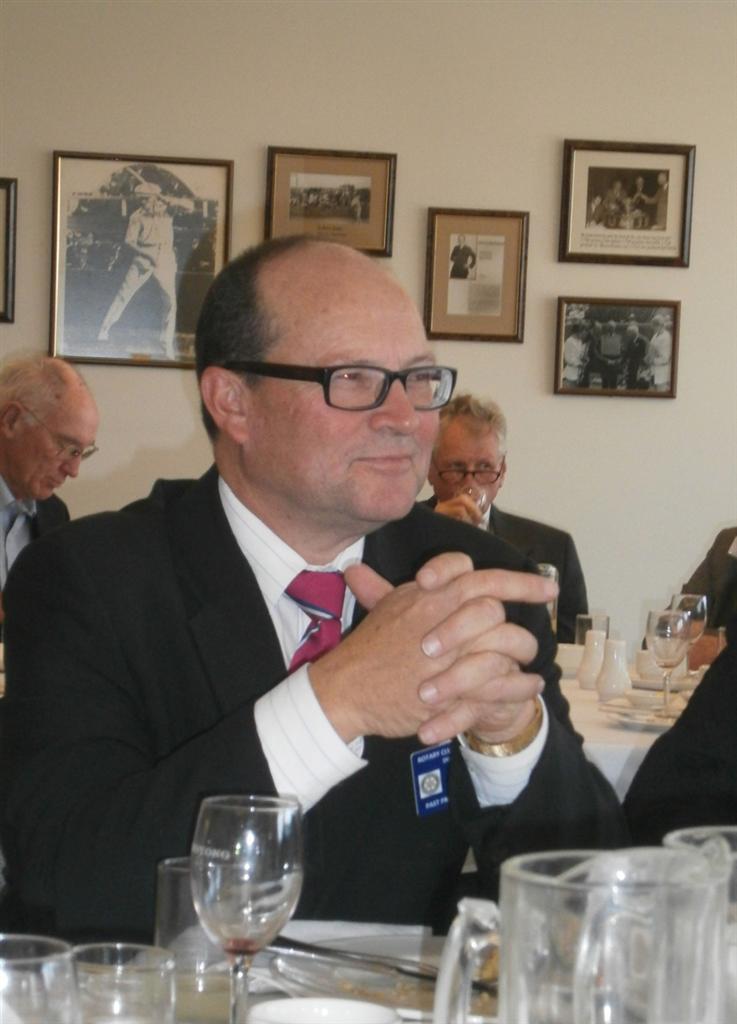Philip Endersbee - Champion for Australian Manufacturing

|
Philip Endersbee is the managing director of the proudly Australian Wideness Wear group of companies. He gave the Rotary Club of Hawthorn a thought provoking address on his and his company’s success and battles to prosper as an Australian manufacturing entity.He suggested that the rationalist’s “dollar” measure (i.e the lowest cost) by which much policy and practice has evolved in Australia is too narrow. |
Originating from Tasmania he described how his love of sports notably car racing and especially yachting had at an early stage of life established links from sail cloth production in Tasmania to the broader discipline of textile manufacture and marketing. Undertaking tertiary studies in textiles in 1972 despite fatherly advice to go into the perceived populist opportunities in other emerging boom industries like mining, Philip ultimately acquired and built up a small Tasmanian company to the present Wilderness Wear group known for its unique outdoor clothing.
Along the way he has fought many battles with governments in arguing for industry policies conducive to economically viable Australian manufacturing industry and yet were socially valuable for Australia. In demonstrating the difficulties Philip pointed out that in 1972 there were about 360,000 people in the manufacturing industry but now only 36,000.
In addition Philip told of how he found time for Rotary and sports. He has just completed a term as President of Melbourne RC.
Philip argued that many policies on regulation, red tape and accreditation processes disadvantaged Australian manufacturers in contrast with overseas competitors. Aspects of Australian wages policy and expectations, hidden overseas subsidies, anomalies in Trade Agreements, and even Australia’s educational emphases (a lack of technical colleges) exacerbated the difficulties for a strong and diverse Australian manufacturing industry.
Wilderness Wear’s success still was an example of how persistence , clear strategic and targeted focus, with sustained high quality and a careful marketing approach can sustain an Australian manufacturer. Wilderness Wear would not discount its brand with "home brand sales" nor expose itself to mass retail exploitation.
Questions from the audience some framed with examples of inefficient Australian manufacturing and tales of rational economic drivers added to the occasion and left us with an understanding of the difficulty for governments in getting a policy balance cognisant of the globalisation of industry and the needs for Australia in the broadest sense of the meaning of “economic health”.